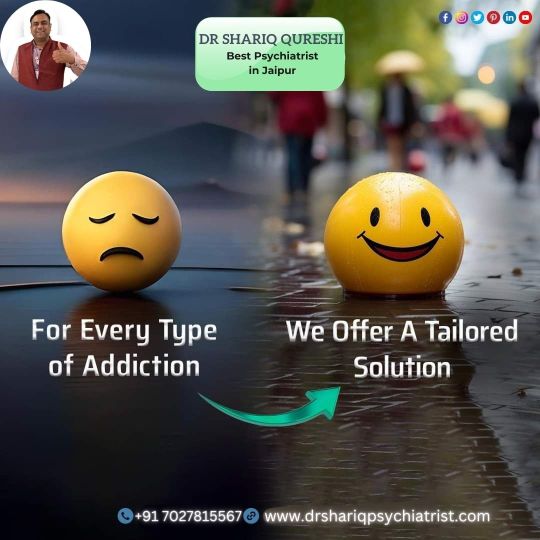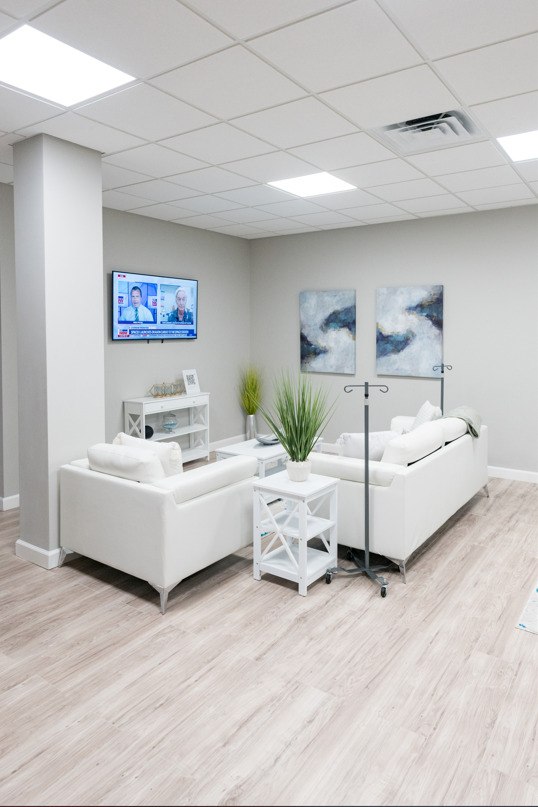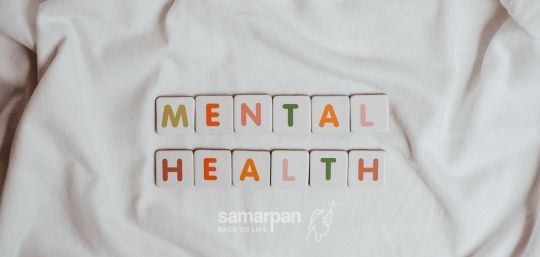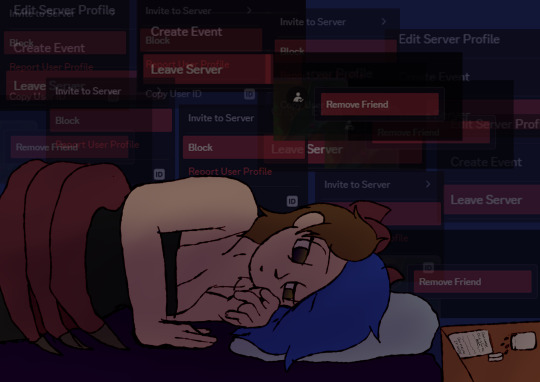#Therapist For Addictive Disorders
Explore tagged Tumblr posts
Text
Please, if you can, take a moment to read and share this because I feel like I'm screaming underwater.
NPD (Narcissistic Personality Disorder) stigma is rampant right now, and seems to be getting progressively worse. Everyone is using it as a buzzword in the worst ways possible, spreading misinformation and hatred against a real disorder.
I could go on a long time about how this happened, why it's factually incorrect (and what the disorder actually IS), why it's harmful, and the changes I'd like to see. But to keep this concise, I'll simply link to a few posts under the cut for further reading.
The point of this post is a plea. Please help stop the spread of stigma. Even in mental health communities, even around others with personality disorders, in neurodivergent "safe" spaces, other communities I thought people would be supportive in (e.g. trans support groups, progressive spaces in general), it keeps coming up. So I'm willing to bet that a lot of people on this site need to see this.
Because it's so hard to exist in this world.
My disorder already makes me feel as if I'm worthless and unlovable, like there's something inherently wrong and damaged about me. And it's so much harder to fight that and heal when my daily life consists of:
Laughing and spending time with my friends, doing my utmost best to connect and stay present and focused on them, trying to let my guards down and be real and believe I'm lovable- when suddenly they throw out the word "narcissist" to describe horrible people or someone they hate, or the conversation turns to how evil "people with narcissistic personality disorder" are. (Seriously, you don't know which of your friends might have NPD and feels like shit when you say those things & now knows that you'd hate them if you knew.)
Trying to look up "mental health positivity for people with npd", "mental health positivity cluster bs", only to find a) none of that, and b) more of the same old vile shit that makes me feel terrible about myself.
Having a hard time (which is constant at this point) and trying to look up resources for myself, only to again, find the same stigma. And no resources.
Not having any clue how to help myself, because even the mental health field is spitting so much vitriol at people with DISORDERS (who they're supposed to be helping!) that there's no solid research or therapy programs for people like me.
Losing close friends when they find out, despite us having had a good relationship before, and them KNOWING me and knowing that I'm not like the trending image of pwNPD. Because now they only see me through the lens of stigma and misinformation.
Hearing the same stigma come up literally wherever I go. Clubs. Meetings. Any online space. At the bus stop. At the mall. At a restaurant. At work. Buzzword of the year that everyone loooves loudly throwing around with their friends or over the phone. Feels awesome for me, makes my day so much better/s
I could go on for a long time, but I'm scared no one will read/rb this if it gets too much longer.
So please. Stop using the word "narcissist" as a synonym for "abusive".
Stop bringing up people you hate who you believe to have NPD because of a stigmatizing article full of misinformation whenever someone with actual NPD opens their mouth. (Imagine if people did that with any other disorder! "Hey, I'm autistic." "Oh... my old roommate screamed at me whenever I made noise around him, and didn't understand my needs, which seems like sensory overload and difficulty with social cues. He was definitely autistic. But as long as you're self-aware and always restraining your innate desire to be an abusive asshole, you're okay I guess, maybe." ...See how offensive and ignorant that is?)
Stop preventing healthcare for people with a disorder just because it's trendy to use us as a scapegoat.
If you got this far, thank you for reading, and please share this if you can. Further reading is under the cut.
NPD Criteria, re-written by someone who actually has NPD
Stigma in the DSM
Common perception of the DSM criteria vs how someone may actually experience them (Keep in mind that this is the way I personally experience these symptoms, and that presentation can vary a lot between individuals)
"Idk, the stigma is right though, because I've known a lot of people with NPD who are jerks, so I'm going to continue to support the blockage of treatment for this condition."
(All of these were written by me, because I didn't want to link to other folks' posts without permission, but if you want to add your own links in reblogs or replies please feel free <3)
#actuallynpd#signal boost#actuallyautistic#mental health awareness#narcissistic personality disorder#people also need to realize that mental health professionals aren't immune from bias#(it really shouldn't come as a shock that the mental health field has a longstanding pattern of misunderstanding and mistreating ppl who ar#mentally ill or otherwise ND)#the first therapist i brought up NPD to like. literally pulled out the DSM bc she could barely remember the criteria. then said that there'#no way I have it because I have low self-esteem lmaoooooo#anyway throwback to being at work and chatting with a co-worker. and the conversation turning to mental health. and him saying that#he tries to stay informed and be aware and supportive of mental health conditions & that he doesn't want to be ignorant or spread harmful#misinformation. and then i mentioned that i do a lot of research into mental health stuff and i listed a bunch of things. which included#several personality disorders. one of which was NPD.#and after listening to my whole ass list he zeroed in on the NPD and immediately started talking about how narcissists are abusive and#he knew someone who had NPD and how the person who had it had an addiction and died from the addiction in a horrible way and he#was glad he did#fun times#or when i decided to be vulnerable and talk abt my self-criticism/self-hatred bc i knew my friends also struggled w that and i wanted to#support them by sharing my own coping methods. and they both(separately!) started picking and prodding at my npd through the lens of stigma#bc i'd recently opened up to them abt having it. they recognized self-hatred as a symptom and still jumped on me for it. despite me#trying to share hurt vulnerable parts of myself to help them and connect with them.#again..... fun times
8K notes
·
View notes
Text
started watching heartstopper and i've been super careful because of the whole eating disorder. turns out that isn’t even the issue anymore. what absolutely blindsided me was the scene where their mum sends tori to get charlie before dinner. tori being so worried, tori noticing that there’s something wrong when their parents joke about the lack of seasoning. siblings being there for siblings because their parents suck at actual parenting or even worsen a situation at times...... seems like years of therapy can help you manage disorders but what's even harder to overcome is the feeling of absolute despair, being completely alone in the world with no one to turn to or even to trust
#heartstopper#sorry this is depressing i know#ep2 just hit me in the face and i wasn't prepared for this#my oldest sister has borderline#my older brother was addicted#then there's me with eds since i was 12 and anxiety and depression since i was 15 but diagnosed only in my 20s#and then my little sister who's trying..... i know she is but she's just as broken but won’t let anyone near her#my dad working 60 hours a week completely overworked narcissistic hothead leaning towards alcoholism#and my mum suffering years of generational trauma - a super nervous anxious perfectionist with an eating disorder herself#both parents reqlly hard working but no access to education and any progressive ideas such as how to properly treat your children's issues#mental health#what's that#talking to therapists???#nope that's for actually sick people#damn.......#i can't believe this triggered so much#charlie spring#tori spring#spoilers
20 notes
·
View notes
Text
i got that kind of mentally ill swag where everyone in my life knows that i need to be medicated except my therapist ✌️💕🌎
#literally reconnected with a friend from high school and she was talking about her struggle to get adhd meds#and i was like 'oh yeah glad to not have to deal with that anymore'#and her reaction was literally just: 'you're not medicated?? 😨'#like girl.......#but then i go into therapy and cry for an hour straight about how i can't imagine continuing live with my current level of anxiety#and my therapist is like 'what about the same meditation technique i've suggested five times now ✨ i bet that would fix you'#and also my therapist being like#'of course when we get this overwhelmed we want to turn to things that dissociate us from the feeling. like addictions.'#me a bitch who they know has both addiction issues and a whole disorder characterized by dissociation: 😶#that's right boys it's MY turn to vent overly personal stuff on tumblr dot com#read my vent post boy#i'm just. frustrated and tired. and very very tired also.#and did i mention tired#figs sillies#vent post
4 notes
·
View notes
Text
I’m starting all the big girl stuff and learning how to do diagnostics and treatment methods. Way to make me equally terrified and excited 🥲
#I have to start sitting in on AA and NA meetings which makes me extremely scared bc I gotta go alone to those 🥲#but yeah we really gettin in it now#bc right now I’m doing focus areas addiction and substance abuse and then neurodevelopmental disorders in children#but both are starting off with basic clinical practices#and it’s also a little funny bc in one of my classes today I was sitting there like ‘ohhh that’s what my therapist was doing’#but yeah I’m scared but also not scared#and I’m like ‘yay my copy of the DSM-V is finally gonna be put to use’#but I’m actually far more scared bc actual clinical internships aren’t the far future now#that shit is SOOOOOON and what if I’m bad at it 👀#I mean I’m sure I’ll be fine BUT THAT SHIT IS COMING UP IT AINT A WHEN IM OKDER THING ANYMORE#ITS LIKE NEXT SEMSESTER 🥲
7 notes
·
View notes
Text
I wouldn’t wish a restrictive eating disorder on my worst enemy🥰
#really fucked myseld over when I chose to go anorexic for the summer when I was 13#now it’s still summer at age 20 and I’m still going anorexic#truly the only decision I’ll ever regret#something really traumatizing was happening and it was to get in control of my life and it’s not my fault but it’s totally my fault and now#I have to live the rest of my life hating my physical existence#I truly believe if my thighs were skinnier I would finally get rid of it but apparently that’s something I think because my eating disorder#according to my therapist#who would’ve thought????#ED is a type of addiction and it’s the fucking worst kind because you can lock an addict of anything in a room without the thing they’re#addicted to and they won’t use#my addiction is my fucking body#I can’t just get rid of my body#truly a bad investment on my end tbh#rae’s rambles#tw eating disorder
8 notes
·
View notes
Text
ghosted my therapist yesterday
Lord have mercy on me
#therapy#major depressive disorder#actually mentally ill#depression#depressed#anxiety#social anxiety#therapist#just ghosted my therapist#i wouldn't mind being sad i just want to be clean#sorry for being depressing#self h@rm#self h@rm addiction
8 notes
·
View notes
Text

Dr Shariq Qureshi- Best Psychiatrist in Jaipur
J, 2/37, Pandya Hospital, Mahavir Marg, opposite Jai Club, C Scheme, Jaipur, Rajasthan 302001
07027815567
addiction, deaddiction, smack addiction, jaipur psychiatrist, best psychiatrist in jaipur, buprenorphine, psychiatrist in jaipur, psychiatrist jaipur, top psychiatrist in jaipur, best psychiatrist near me, psychiatrist, top psychiatrist in jaipur, top 10 psychiatrist in jaipur, nasha mukti, addiction treatment in jaipur, treatment of smack addiction, treatment of addiction in jaipur, best psychiatric doctor in jaipur, best psychiatrist, best psychiatrist doctor, best psychiatrist hospital in jaipur, best psychiatrist in india, best psychiatrist in rajasthan, best psychiatrist jaipur, deaddiction treatment, treatment of addiction, best psychiatrist in india, top psychiatrist in india, deaddiction treatment in jaipur, buprenorphine in jaipur, nashamukti in jaipur, nasha mukti jaipur,
#headache#migraine#psychiatrist#psychologist#stress#anxiety#addiction#deaddiction#buprenorphine#smack#best psychiatrist in india#best psychiatrist#best psychologist#bipolar#bipolar disorder#jaipur psychiatrist#psychiatrist in jaipur#therapy#therapist
0 notes
Text
.
#how do i tell my mom i need a therapist for my disordered eating#lmao#tw eating disorders#i feel like its the only way i can ever be happy#food is a source of such shame and guilt#but i love food so much#but the way i cannot control myself around it and gain and lose the same 50 pounds because of it#i feel like an addict like that's the cycle im in constantly#and the moment i emotionally eat it feels like a relapse and it doesnt stop for months#tw food#sorry i just hate life rn
0 notes
Text
woke up at 5pm stummy hurts head hurts i have to take 5 medications and do the goddamn dishes. life is hell. nevertheless i stay chill and relaxed. due to the medications.
#have panic attack meds that i never use (got prescribed them last year bc i was having a ROUGH time with family stuff)#like i got prescribed 30 of them six months ago and ive used maybe 5-10 of them. and i usually have to take multiple per attack#i have used... four this week so far. bc ive had a panic attack every morning. Odd!#they're not that bad like i literally just start breathing too hard and cant control my heart rate and the meds take care of it within 30min#they're just antihistamines so not addictive or dangerous or anything just help w the heart rate thing#but!! idk whats wrong with me! i mean i do im super behind academically and its terrifying. but normally im fine#its easy to forget that i like have a Disorder and that most ppl do not have daily panic attacks when they're nervous abt things#uh. idk. i need to find a local therapist and talk to my advisor and mayb a school counselor until i find a therapist?#but then the process of like booking an appointment and also admitting how much ive fucked up my grades is also#going to give me panic attacks. ah well. nevertheless i persevere. i walk in the valley of the shadow of death etc etc.#for now im going Home for the weekend and my only goal is to make a list of what i need to do to get back on track#and book appointments. Also change my name but thats NBD i already did all the work for that
1 note
·
View note
Text
Counselling for Depression - Dublin City Psychotherapy
How do counselors help people with depression?
Counselors play a crucial role in helping people with depression by providing support, guidance, and therapeutic interventions. Their primary goal is to help individuals understand and manage their emotions, thoughts, and behaviors in order to alleviate symptoms of depression and improve overall well-being. Here's how counselors typically assist people with depression:

Assessment: Counselors begin by conducting an assessment to understand the client's unique situation, symptoms, and challenges. This assessment helps them create a tailored treatment plan.
Creating a Safe Space: Counselors provide a non-judgmental, safe, and confidential environment where clients can openly express their feelings, thoughts, and concerns.
Active Listening: Counselors listen attentively to clients' experiences, allowing them to feel heard and understood. This can help clients process their emotions and gain insights into their struggles.
Psychoeducation: Counselors educate clients about depression, its causes, symptoms, and potential triggers. This knowledge can empower clients to better understand their condition and develop effective coping strategies.
Cognitive Behavioral Therapy (CBT): CBT is a widely used therapeutic approach that helps clients identify negative thought patterns and replace them with more balanced and realistic thoughts. This process can lead to changes in emotions and behaviors.
Behavioral Activation: Counselors work with clients to identify pleasurable and rewarding activities that can counteract the lack of interest and energy often experienced in depression.
Problem-Solving Skills: Counselors teach clients effective problem-solving skills to address difficulties and challenges that contribute to their depression.
Mindfulness and Relaxation Techniques: Counselors introduce mindfulness and relaxation techniques, such as deep breathing, meditation, and progressive muscle relaxation, to help clients manage stress and anxiety.
Supportive Therapy: Counselors offer emotional support and encouragement, helping clients build a sense of hope and resilience as they navigate their depression.
Exploration of Root Causes: Counselors help clients explore underlying issues that may contribute to their depression, such as past traumas, unresolved conflicts, or life transitions.
Setting Goals: Counselors collaborate with clients to set achievable goals that focus on improving their mood and functioning. Progress towards these goals is regularly assessed and adjusted as needed.
Medication Management: While counselors typically don't prescribe medication, they might work in conjunction with psychiatrists or medical professionals who do. They can provide information about medication options and monitor their clients' response to treatment.
Referral: If necessary, counselors can refer clients to other specialists, such as psychiatrists, for medication evaluation or medical conditions that might be contributing to depression.
Building Coping Skills: Counselors teach clients healthy coping skills to manage stress, negative emotions, and difficult situations without resorting to unhealthy behaviors.
Follow-Up and Maintenance: Counselors provide ongoing support and check-ins to monitor progress and help clients maintain their improvements over time.
Remember that the effectiveness of counseling can vary based on individual preferences and needs. It's important to find a counselor who is a good fit and to communicate openly about your experiences, concerns, and goals.
What counseling theory is best for depression?
There isn't a single "best" counseling theory for treating depression, as different theories can be effective for different individuals based on their unique needs and preferences. However, several counseling theories have shown success in treating depression. Here are a few prominent ones:
Cognitive Behavioral Therapy (CBT): CBT is one of the most widely studied and effective approaches for treating depression. It focuses on identifying and changing negative thought patterns and behaviors that contribute to depression. Clients learn to challenge distorted thinking and develop more balanced and realistic perspectives. CBT also involves behavioral strategies to increase engagement in rewarding activities and improve mood.
Behavioral Activation: This approach is a specific component of CBT that focuses on increasing engagement in positive and meaningful activities to counteract the reduced motivation and pleasure often associated with depression.
Mindfulness-Based Cognitive Therapy (MBCT): MBCT combines elements of CBT with mindfulness practices. It helps individuals become more aware of their thoughts and emotions, allowing them to respond to challenges in a more balanced and non-judgmental way. MBCT can be particularly effective in preventing relapse for individuals who have experienced recurrent depression.
Interpersonal Psychotherapy (IPT): IPT focuses on improving interpersonal relationships and social functioning, as disruptions in relationships can contribute to depression. It helps clients identify and address relationship difficulties, role transitions, grief, and other interpersonal stressors.
Psychodynamic Therapy: This approach explores unconscious processes and early life experiences that may contribute to depression. Psychodynamic therapy aims to uncover underlying emotional conflicts and provide insight into their impact on current emotions and behaviors.
Humanistic and Person-Centered Therapy: These therapies emphasize empathy, unconditional positive regard, and a non-directive approach. They help clients explore their feelings and experiences, fostering self-acceptance and personal growth.
Solution-Focused Brief Therapy: This approach focuses on helping clients identify their strengths and resources, set achievable goals, and develop strategies to move toward positive change. It is often more future-oriented and brief in nature.
Acceptance and Commitment Therapy (ACT): ACT combines mindfulness and behavioral strategies to help clients accept their thoughts and feelings without judgment and commit to taking actions aligned with their values. This can be especially helpful in managing the distress associated with depressive thoughts and emotions.
It's important to note that individual preferences, the severity of depression, and other personal factors can influence the choice of counseling theory. Some people might respond better to a combination of approaches or a tailored integration of different techniques. Ultimately, the effectiveness of any theory depends on the client's willingness to engage in the therapeutic process and the skills of the therapist in delivering the chosen approach.
#addiction counsellors dublin#relationship counseling dublin#therapist in dublin#borderline personality disorder#trauma counselling in dublin#grief counselling in dublin
0 notes
Text
Website: https://www.pbketamine.com/
Address: 824 US Hwy 1 Suite 110, North Palm Beach, FL 33408
Phone: +1 561-650-4183
Ketamine therapy is revolutionizing the industry for those struggling with depression, PTSD, panic disorder, OCD and many other conditions that affect mood and behavior. In addition to treating suicidal thoughts, severe depression, and trauma-related flashbacks or nightmares, ketamine helps bring back balance when it comes to dealing with overwhelming emotions.
Business Email: [email protected]













#Ketamine#Mental health#Therapy#PTSD#OCD#Mood disorder#Depression treatment#Behavioral therapy#Trauma therapy#Ketamine treatment for mental health#Mental Health Services#Therapist#PTSD Therapy#Addiction Therapy#Depression Therapy#Alternative therapy#Alternative medicine#Ketamine Treatment Alternative Medicine
1 note
·
View note
Text

Samarpan provides evidence-based mental health treatment programs in Mumbai, monitored by experienced therapists and highly qualified healthcare professionals for a comprehensive approach to recovery. We provide personalized treatment plans to help patients overcome their addictions and manage their disorders. If you or your loved ones are struggling with addiction or any disorder, consult with our highly qualified team to discuss treatment options that are best suited to your individual needs.
#mental health treatment in mumbai#depression treatment in mumbai#addiction treatment in mumbai#best treatment for anxiety in mumbai#therapist in mumbai for depression#counselling for depression in mumbai#anxiety treatment in mumbai#mental health centres in mumbai#mental health counsellor in mumbai#disorders management therapy mumbai
1 note
·
View note
Text
About to fall asleep ramble time, this has been kicking around in my brain for a bit and I need to get some form of this thought out
I was diagnosed with ADHD and gender dysphoria one day after the other back in August. Extremely stereotypically zillenial of me, I know. Handling both of these has dramatically improved my quality of life. yes yes insert discourse about how much you need to have dysphoria as a diagnosis, it's just a tool for the medical system that's ultimately meaningless, that's not what this is about.
There's one thing that was really, really weird about the experience of getting care for both of these.
Most treatment and public talk of transition and motivations to transition are about misery. How much despair your birth sex gives you and how gender affirming care is the only stopgap against suicide (oftentimes, used as a barrier to entry that it should only be given when it's at the suicidal point). How crushing dysphoria is.
In contrast, most of the public perception of ADHD is this cutesy, "omg look I'm so quirky" kind of thing. People talk of ADHD "superpowers" and how neat it is to have hyperfixations (I'm low key starting to dislike that word, even though it's an accurate description of many things- it's very overused).
My actual experience has been almost exactly the opposite.
I absolutely had gender dysphoria, and still do, and misery associated with being AMAB. But is that what defines my trans experience? No, and in fact, it feels like a more incidental blip in it. My trans experience has mostly been defined by joy, by feeling my mind and body slowly make me more and more content with my default existence day after day. And the exploration of it all! The social roles, the romantic dynamics, the friendship dynamics, even small aesthetics like clothes and makeup, and again, the body and mood changes. It's incredible and it brings me joy so much of the time. That, more than anything, has defined my trans experience.
In contrast.... ADHD has objectively made nearly every aspect of my life more miserable. Working with my therapist and my pysch, as well as feeling what it's like to be properly medicated, have shown me extremely well how much the constant feelings of misery I always seemed to have were caused by ADHD. ADHD means being unable to receive a baseline level of dopamine to function under normal circumstances, so your brain starts looking for any way it can get new sources. And wouldn't ya know it, novel stimuli are a perfect way to do that. Keep in mind that dopamine isn't just "the pleasure molecule" it's a neurotransmitter with a broad range of functions. If you don't have ADHD, or even if you do, I want you to think about how miserable of an existence that is. Your default state is depression and inability to do things. It has been for me for most of my life. Additionally, anxieties creep into your head and distract you far more easily. You're less functional. You can't do simple things most of the time. You're distracted and have anxiety spikes easily. Continuous tasks are hard. And day in, day out... You are miserable. Almost constantly.
Oh also, you're easily addicted to extreme novel stimuli. For me, it was self harm. And when that stopped working... Well, I was in a state of mostly background depression that was only punctuated by spikes of massive, overwhelming anxiety that my brain hooked itself on. At a certain point, I just wanted it to end, by any means necessary.
It's been almost ten years since that day, and at this point I can genuinely say that I'm glad I'm still here.
But it wasn't dysphoria that did that (it contributed a bit, but still wasn't the biggest factor). Or a depressive disorder. Or bipolar. Or whatever the big, more "scary" mental illnesses or neurodivergencies are. They tried to treat me for some of them, and it ended horribly. My symptoms fit mixed presentation ADHD perfectly, including my physiological response to stimulants. They don't fit anything else. I likely don't have any strong comorbidities, unless you count the symptom-level anxiety and depression. ADHD did all of that to me. The "cute and quirky" one.
By the time I got around to a diagnosis, my pysch was astounded that I made it as far as I did with symptoms as severe as mine. Tackling ADHD has removed so much misery from my life, it's indescribable. Adderall has been the only thing that has ever actually gotten rid of my constant anxiety.
It's not fucking cute. Keeping with this being the flip side to my dysphoria, I do try to keep it light most of the time, and I join in on all of the classic "whoopsie doopsie my ADHD" trains and jokes. You don't have to stop making those, hell, they're fun. There are cute and funny parts to having ADHD, and ways it's made my personality what it is. But don't forget that this is also something that makes people genuinely suffer well beyond the "oopsie I'm such a procrastinator!!!" Type thing.
Idk where this thought is going. It's just kind of an observation that's been kicking around in my head for a bit. So uh. Hope it at least generates discussion? Feel free to add your experiences if you think it'll help you. But fuck I need to sleep lol
351 notes
·
View notes
Text
Succubus HRT - Week ???? - Borderline Aftermath

In an effort to listen to my therapist, to better help myself, and to help possibly enlighten and educate people. A lot of Succubus HRT is contextual to my own personal struggles with borderline personality disorder, ptsd, hypersexuality, and my suicidal tendencies. A very not-fun blend of mental issues. A lot of this was meant to stay in private journals. But as I started to draw more, I felt like presenting the art publicly might also help others struggling in the same or similar ways. Make no mistake, I am making progress, and I am doing better. But sometimes it gets hard. Sometimes guilt from previous episodes take hold. Sometimes PTSD takes the wheel and I relive the pains that caused the episodes all over again via emotional flashbacks. Living like this, is often an inescapable waking nightmare. One small miscommunication. One small mistake. One small misread of a mundane sentence. One unexpected minor change in the dynamics of a relationship with someone. It's enough to send me into a spiral. Of course the bigger triggers affect harder. Unkept promises, lies, being used. All these triggers often leave open wounds that don't simply heal. If not resolved, or if someone simply just doesn't care, what starts is a near bottomless decline into various degrees of mania, depression, anxiety, and so much more. It gets even worse when the person who triggers it simply tries to ignore it, or act as though it's wholly my fault for feeling hurt and the episodes I have afterwards. That doesn't happen often, and I've since found the strength to not be friends with those who have done this to me.
These episodes can last weeks, months. I get incredibly paranoid about every interaction, as if I might slip and fall onto spikes at any moment. Or that the masks might slip and the person I'm speaking with will start to scream about how they hate me and want nothing to do with me. It's a constant battle with intrusive thoughts, false memories. I often spend nights crying having fabricated arguments in my head, catastrophizing until I pass out from the pain. Abject isolation and me spending a night ghosting nigh everyone I know and love in one last self-destructive episode is a common grand finale of the spiral. An episode can take place over weeks, months. For some people they just go about their lives, while I hold on to a small hurt that collects, festers, and explodes outward seemingly out of nowhere. To them, they're doing nothing. But to me, even just being shorter than usual in their replies feels like claws on my heart. So I lash out. Causing constant and irreparable damage around me to relationships and those in them. It's as if existing with BPD gives me a constant AOE Ring of Fire that causes friendly fire damage.
"People with Borderline Personality Disorder (and those like them) are like people with third degree burns over 90% of their body. Lacking emotional skin, they feel agony at the slightest touch or movement." - Marsha Linehan
Very few quotes have ever felt or spoken as true to me about living with borderline as this one. It best encapsulates how I feel when episodes happen. Like my whole body exists as an open wound, and every small trigger causes inexplicable pain throughout my brain and my heart. Which has often led to my struggles with addictions to pain pills and the like. The worst part, is there is often no perfectly right way to engage with me. Episodes will happen over the smallest things. I cannot guarantee I won't struggle. People with borderline, we struggle often, and greatly. What we struggle with cannot just simply be fixed, or even helped. But with patient and understanding hands, we'll pull through okay in the end. Fragile, handle with care.
#lari's thoughts#trans#transgender#trans artist#art post#webcomic#borderline personality disorder#bpd posting#living with borderline#sucubus#succubus hrt#therian hrt#animal hrt#vent post#sad posting
81 notes
·
View notes
Text
Tw
#I’m ed relapsing but like in a subtle way and it’s just such a hopeless feelings when you’re aware#all of my relapses have been abrupt I’m not used to this slower kind#I really would do anything to not have a restrictive eating disorder#I wouldn’t wish it on my worst enemy#how much happiness I’ve missed out on and will continue to miss out on#genuinely do believe if my thighs were skinnier I’d be cured but my therapist says that’s just a symptom of my ED go off ig queen#yk it’s bad when i ghost ed tags#never interact ofc and usually report it#it’s such a fascinating thing to have an addiction to your own body#you can lock yourself away from drugs or booze or blades but you can’t fucking hide yourself from food and your fucking body#the abuse I’ve put my body through since I was 13#sometimes I look at pictures of myself as a little girl and cry thinking about what I’ve done to her body#wow this is depressing lol#idk who needs to hear this but if you’re 13 and plan on ‘going anorexic for the summer’#it doesn’t work that way you’ll still be going anorexic the summer of your 20s#serious buzzkill#tw eating disorder#rae’s rambles#delete later
5 notes
·
View notes
Text
ADHD/neurodivergent 🧼 (💀🧼 too bc why not/it's my comfort ship and I love them)
(chock full of my own personal HCs and ideas, also mental health stuff/issues/problems heyo)
I am most definitely all for autistic Ghost, but what about ADHD brain/neurodivergent Soap? I've seen few people talk about this or explore it so here we go.
Like, even though Johnny's generally laid back, he still tends to be very hyper or high-strung. Maybe even overwhelming for some people, and is easily excited almost like a puppy (golden retriever Soap my beloved), (Ghost thinking it's literally the cutest thing ever). Bro has either the attention span of a nat or is so hyper-focused on something he forgets to blink.
He has APD (auditory processing disorder),—and will ask you to repeat yourself 15+ times before he finally understands what your saying. This is incredibly frustrating for him, but like Price will lose his shit, because having to repeat himself is like one of his pet peeves lmao. Same thing, with Yuri.
Even Ghost and Gaz get fed up with him on occasion. Though Roach doesn’t give a fuck because they’re just as ADHD as him, and just loves to talk, plus their echolalia helps to sort things out lots of times. Gaz will give him the silent treatment and refuse to talk to him. Usually when Simon finally gets irritated with him it's lead to a fight. But it isn't long before Ghost feels bad and apologizes, and reassures him saying "I know you can't help it". Simon tries to work on learning to be more patient specifically for him. 💕
He does the same things that Simon does to stim, (though particularly pacing and bouncing his leg). But he also likes to chew on everything, whether it’s a pen/pencil, a cap off a water bottle or other plastic drink bottle—(This pisses off Simon in particular, and they’re always scolding him about how he’s gonna end up choking on it. Not to mention, he always leaves the nasty ass, spit-covered things around and forgets to throw them away after he’s done with one. Either leaving Ghost to pick up after him much to his disgust, or forcing Johnny to throw his own shit away, (as he should). If he gets ahold one of those spiky silicone balls from an arcade machine he likes to bite the nibs on it, etc. Simon has even bought him some chewlery because he orally stims so much, to which Soap uses all the time and was overjoyed when Ghost first got it for him. Though his chewlery needs to constantly be replaced because Johnny has unusually strong and sharp teeth. It’s not uncommon for him to completely destroy shit that he gets his paws on. Simon often comparing him to a dog or a teething puppy.
I am also totally for Johnny being just as mentally fucked as Ghost.
He’s the four b's, bisexual, bipolar, bilingual, and a bitch.
Like Simon, Johnny has generalized anxiety disorder (GAD) and post-traumatic stress disorder (PTSD), for similar or for maybe even the same reasons as Ghost. Not nearly to the same level of severity, but panic attacks and flashbacks do happen on occasion. As with certain things he's easily triggered.
He also struggles with bipolar disorder and/or severe manic depression. His bipolar tendencies making it incredibly difficult to maintain relationships in his youth, among many other things, (his past drug abuse/addiction only making him worse and more unstable). Though these days he’s medicated and for the most part stable, only sometimes going off his meds, (particularly when he relapses or is heavily triggered by something).
No therapist has ever been able to help Soap, though he does see a psychiatrist regularly.
Mostly for anti-psychotics and other prescription refills and the like, but can vent as much as he likes to them. Either that, or Simon doesn't mind lending an ear to listen when he needs it.
Similar to Ghost, Johnny can have very low self-esteem, but can also be of very high self-esteem, (it fluctuates due to his manic depression). And Simon is more than willing to give him reassurance and comfort, but equally doesn't mind knocking him off his high-horse, and/or, taking down his ego a few pegs if need be. (Which isn't so bad, as Johnny just so happens to have a degradation kink). >:3
Johnny is a highly reserved person, (though he’s able to put on a mask/a show for other people and strangers), and pretty stoic (all things considered), due to his traumatic upbringing. He has a very unhealthy habit of bottling up his emotions until he quite literally explodes, though he's trying to get better about that. But he can’t help but genuinely let his guard down, and has LEARNED to let his guard down around Ghost, the 1-4-1, and his sisters (the most important people in his life).
This tidbit has less to do with mental health and rather his personality but I still wanted to include it here so…
Soap is highly perceptive and emotionally intelligent. You can't hide anything from him as he can always tell when someone's lying to him, and he always knows when something's wrong. A true empath. He's also a very good liar himself because of this, but he uses this secret power responsibly, and would never lie to those closest to him and/or his loved ones.
All members of the 1-4-1 having highly specific phobias? Yes please.
As for Johnny…
He is deathly afraid of needles and hospitals (Trypanophobia and Nosocomephobia), because when he was growing up and as a young kid he was quite sickly, and often was in and out of the hospital. He's immunocomprised and gets sicks all the time, most of the time nowadays when he gets sick it's just a small cold, with the occasional illness that may put him out of commission for a bit—Simon always doting over him and making sure he’s okay when he even so much as senses he’s got a runny nose—Johnny finding it incredibly endearing, but when he was a child it was horrible. When he was hospitalized he'd suffer at the hands of doctors and nurses much too often, going through one too many traumatic experiences. Mostly, because of incompetence or just straight up apathy. Getting his IV done is the worst, because he's cursed with almost non-existent and small veins. Oh so jealous, of Ghost's huge and bulging veins. Someone will stick him upwards of 10 times or more, or until his arms are swollen, until they finally get it right usually. Not to mention, Johnny also has Hemophilia, and so he bleeds a lot which only makes it even more distressing. Soap specifically underwent medical and first-aid training, just so he could avoid going to medical himself as much as possible. His medical knowledge and training has happened to pay off lots of times in the field, for himself or for his teammates or squad’s sakes. Despite his aversion, he's not squeamish at all when it comes to mending his own wounds, or others weirdly enough. Even if he's severely injured he refuses to go to medical. Simon used to get really mad at him for this, because of not only his stubbornness, but seemingly his cockiness was what really pissed him off. And they know Johnny’s skills only go so far, and he's immunocomprised and a hemophiliac for crying out loud. Eventually Ghost confronted him about this, and after Soap explained everything it was a lot more understanding and sympathetic. Though it didn’t change the fact that it will borderline harass him if he’s seriously hurt and won’t go help himself, or just straight up force him to go to medical. Johnny always protests but ultimately he gives in, and Simon makes sure to give him emotional support and stay with him when he needs patched up.
Thank you for reading my ramblings, next post will be about my take on Ghost, his mental health, his autism, etc, probably!
#cod modern warfare#call of duty#cod mw3#cod mw2#video games#ghoap#ghostsoap#soapghost#john soap mactavish#soap cod#soap call of duty#ghost x soap#soap mw2#soap mw3#john mactavish#adhd#headcanon#headcanons#cod fanfiction#cod fanfic#fanfic#fanfiction#ship dynamics#shipping#cod#autism#adhd x autism#autism x adhd#mental health#actually adhd
93 notes
·
View notes